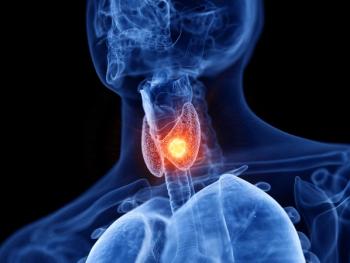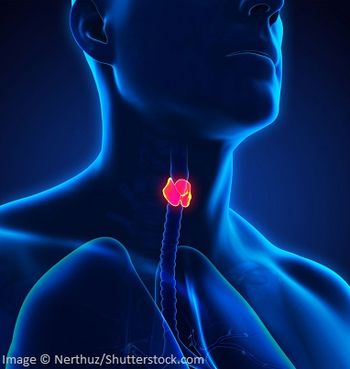
Oncology NEWS International
- Oncology NEWS International Vol 11 No 8
- Volume 11
- Issue 8
Hanford I-131 Releases Did Not Increase Thyroid Cancer Risk
WASHINGTON-Scientists have concluded that no increased risk of thyroid disease, including cancer, befell children exposed to Iodine-131 released from the Hanford Nuclear Weapons Production Facility in Washington State. According to
WASHINGTONScientists have concluded that no increased risk of thyroid disease, including cancer, befell children exposed to Iodine-131 released from the Hanford Nuclear Weapons Production Facility in Washington State. According to the Centers for Disease Control and Prevention, the Hanford Thyroid Disease Study (HTDS) found that the risk of thyroid disease was about the same among study participants regardless of dose levels of radiation they received in the period between 1944 and 1957.
Thyroid disease was found in those exposed, but the rates were essentially the same across all levels of exposure, the CDC said. The Fred Hutchinson Cancer Research Center and the CDC released the final report of the 13-year HTDS during a community meeting in Richland, near the Hanford facility.
Congress mandated HTDS after the 1988 revelation by the US Department of Energy that large amounts of I-131 were released at the Hanford facility in the 1940s and 1950s, with releases peaking in 1945.
Articles in this issue
over 23 years ago
Prostate Cancer Cell Line Vaccine Promising in Phase II Trialover 23 years ago
MoAb Targeting Death Receptor in Breast Cancerover 23 years ago
Chemo/Rituximab Is Effective as First-Line CLL Therapyover 23 years ago
Diagnostic Dilemmaover 23 years ago
Viral Agent ONYX-015 Targets p53-Deficient Cancer Cellsover 23 years ago
Program Educates Teens About Testicular Cancer Self-Examover 23 years ago
Better Colon Cancer Imaging With PET/CT Than With PET AloneNewsletter
Stay up to date on recent advances in the multidisciplinary approach to cancer.





































